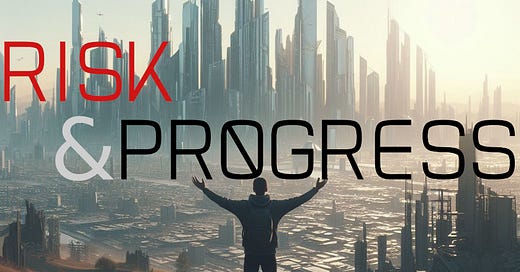Pathways of Progress is an essay series from Risk & Progress. It’s a compilation of 60+ curated essays about human progress. At over 60,000 words, Pathways brings together knowledge from 140+ sources, and over 5 years of research. This collection is organically expanded and refined as new research emerges and new issues are published. Subscribe for free and receive the first 7 essays sent directly to your inbox!
The Paradox of Human Progress
Paradox examines the origins and counterintuitive nature of “progress.”
Evolution’s Algorithm (Coming soon)



